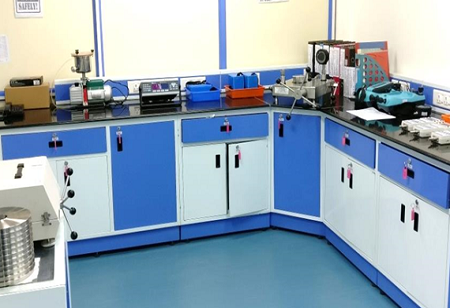A calibration procedure must be performed at regular intervals since it not only helps in verifying the working condition of the measuring devices used but also confirms that the laboratory is aware of the errors that are in the measurement device’s reading. As a matter of fact, calibration is a part of confirming the validity of the results. This is between the client and the customer in order to agree if adjusting the measuring device displays the accurate reading and a part of the commission or not.
As per the definition, calibration denotes the procedures through which connections can be established between the result of a measuring instrument/system or the measurement unit value that is represented by a material measure or reference material under specific circumstances with the corresponding values that are implemented with measurements standards.
Calibration services are highly critical for testing and measuring devices since these devices are required to function with both accuracy and precision. The Calibration services are mainly implemented in order to record and rectify deviations.
These deviations are to be rectified in the performance of testing and measuring devices from their standard performance.
Owing to the need for precise and accurate information the calibration service industry has been expanding to enclose sectors that include aerospace & defense, semiconductors, power generation, petrochemicals, water, electronics manufacturing, communication, and industrial & automotive.
The global calibration service market was estimated to reach USD 5580.00 Million by 2020, expanding at a Compound Annual Growth Rate of 6.99 percent and the growth was predicted to be driven by growing awareness regarding quality standards, strict government regulations, and focus on preventive maintenance.
Transfer traceability
The major task of accredited calibration laboratories is to transfer traceability. It also includes the task of indicating the connection of the measurement result or the measurement standard, which are used by the clients with references, and the help of an unbroken chain of comparisons in the chain that has been notified.
Consequently, measurement uncertainty is a parameter that is related to the measuring result which describes the assumed variation of the measured quantity and the size of the measurement uncertainty impacts the approval limits of the results. This is in turn influenced by the measuring target, instrument, method, and the person performing the measurement. It also includes environmental conditions when the measurement is being performed.
Accredited calibration laboratories calibrate measuring devices. These are related to multiple parameters. Furthermore, the quality management system of an accredited calibration laboratory meets the principles of the ISO 9001 standard. The international organizations' ISO, ILAC, and IAF have stated this compliance in their joint declaration. The calibration services market is anticipated to witness moderate growth in the coming days.
